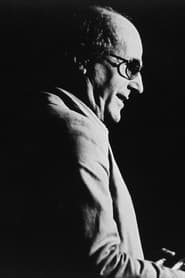
Manoel de Oliveira
Manoel de Oliveira was born in Porto, Portugal on December 11, 1908, to Francisco José de Oliveira and Cândida Ferreira Pinto. His family were wealthy industrialists. Oliveira attended school in Galicia, Spain and his goal as a teenager was to become an actor. He enrolled in Italian film-maker Rino Lupo's acting school at age 20, but later changed his mind when he saw Walther Ruttmann's documentary Berlin: Symphony of a City. This prompted him to direct his first film, also a documentary, titledDouro, Faina Fluvial (1931). He also acted in the second Portuguese sound film, A Canção de Lisboa (1933). His first feature film came much later, in 1942. Aniki-Bóbó, a portrait of Oporto's street children, was a commercial failure when it opened, and its merit only came to be recognised over time. This drawback forced Oliveira to abandon other film projects he was involved in, and to dedicate himself to running his family vineyard. He re-emerged onto the film scene in 1956 with The Artist and the City, a work that marked a turning point in Oliveira's conception of the cinema. In 1963, O Acto de Primavera (The Rite of Spring), a documentary depicting an annual passion play, marked a turning point for his career. This was shortly followed by A caça (The Hunt), a grim feature film that contrasted with the happy tones of his previous documentary. Despite the widespread acclaim garnered by both films, he would not return to the director's seat until the 1970s. Since 1990 (when he turned 82), he has made at least one film each year. Oliveira has said that he direct movies for the sheer pleasure of doing it, regardless of critical reaction. He maintains a quiet life away from the spotlights, despite multiple honours such as those of the Cannes, Venice and Montreal film festivals. He has been awarded two Career Golden Lions in 1985 and 2004 and a golden palm for his lifetime achievements in 2008.
| Known For | Directing |
|---|---|
| Most Rating | 5.285 |
| Birthday | 1908-12-11 |
| Place of Birth | Porto, Portugal |
| Also Known As | Manoel Candido Pinto de Oliveira, Manuel de Oliveira, Мануэль де Оливейра, Мануэл Ди Оливейра, |
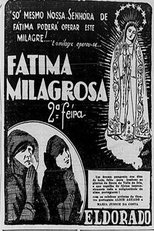
1928

Fátima Milagrosa
0/0
Aninhas (Aida Lupo), a paralyzed girl, asks for a miracle from the saint of her devotion, Our Lady of Lourdes, at the chapel of Penha (Guimarães), but...
Watch Now
Fátima Milagrosa

1933

A Song of Lisbon
8.4/36
Vasco is a medical student in Lisbon, supported by his rich aunts, whom he had falsely told he had already graduated. In fact, he devotes himself to a...
Watch Now
A Song of Lisbon
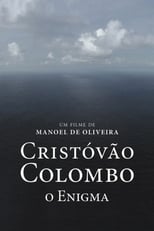
2007

Christopher Columbus, The Enigma
5.3/10
A true story of a doctor and his wife who went on a journey in order to prove that discoverer Christopher Columbus was in fact Portuguese. Inspired by...
Watch Now
Christopher Columbus, The Enigma
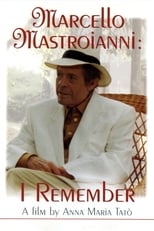
1997

Marcello Mastroianni: I Remember
7.611/9
In 1996, Marcello Mastroianni talks about life as an actor. It's an anecdotal and philosophical memoir, moving from topic to topic, fully conscious of...
Watch Now
Marcello Mastroianni: I Remember

2003

Agostinho da Silva - A Living Thought
0/0
Life and legacy of Agostinho da Silva. Traversing the biographical journey, the life and work of the Luso-Brazilian philosopher, this work has testim...
Watch Now
Agostinho da Silva - A Living Thought
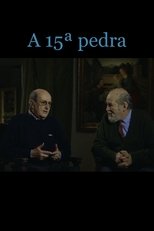
2007

The 15th Stone
5.3/3
Joáo Bénard da Costa, director of the Portuguese National Film Archives [deceased in 2009], interviews the dean of contemporaneous film directors [96-...
Watch Now
The 15th Stone
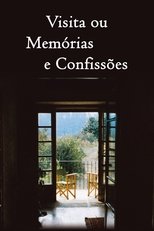
1993

Visit, or Memories and Confessions
7.5/14
A long-hidden, personal doc about leaving a beloved house by the late, revered Portuguese director Manoel de Oliveira.
Watch Now
Visit, or Memories and Confessions

1993

Oliveira, l'architecte
0/0
Paulo Rocha catches up with his “beloved subject” in Porto, where he made Douro, Faina Fluvial in 1929, and where today Oliveira reminisces about the...
Watch Now
Oliveira, l'architecte

1997

Voyage to the Beginning of the World
6.9/14
Manoel is an aging film director who travels with the film crew through Portugal in search of the origins of Afonso, a famous French actor whose fathe...
Watch Now
Voyage to the Beginning of the World
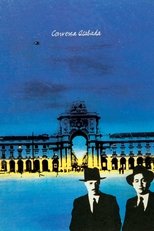
1982

The Conversation Is Over
5.1/7
The film was to be a documentary, but evolved during production to a fictional film. It nevertheless adheres strictly to the poems and letters exchang...
Watch Now
The Conversation Is Over

1990

No, or the Vain Glory of Command
6.075/20
Episodes from entire military history of Portugal are told through flashbacks as a professorish soldier recounts them while marching through a Portugu...
Watch Now
No, or the Vain Glory of Command

1998

Anxiety
6.4/8
An anthology film drama featuring a poetic mirror structure based on existential identity. In "The Immortals," adapted from a Helder Prista Monteiro p...
Watch Now
Anxiety

2001

Porto of My Childhood
6.7/14
Manoel de Oliveira's autobiographical documentary about returning to his hometown.
Watch Now
Porto of My Childhood

1994

Lisbon Story
7.177/110
Lisbon Story is Wim Wenders' homage to Lisbon and films. A sound engineer obtains a mysterious postcard from a friend who at the moment is filming a f...
Watch Now
Lisbon Story
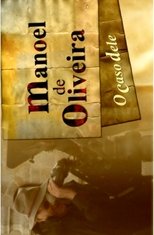
2007

Manoel de Oliveira, O Caso Dele
0/0
A tribute documentary to Manoel de Oliveira, on occasion of his 100th birthday.
Watch Now
Manoel de Oliveira, O Caso Dele

1979

Doomed Love
6.7/15
A story about doomed love between two people from different worlds and the impact in their lives.
Watch Now
Doomed Love
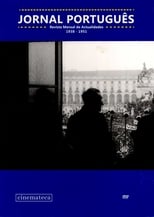
2005

Jornal Português (1938-1951)
0/0
The newsreel series Jornal Português (1938-1951) was produced for the Secretariat of National Propaganda (SPN/SNI) by the "Portuguese Newsreel Society...
Watch Now
Jornal Português (1938-1951)

1963

The Green Years
6.9/26
Nineteen-year-old Julio heads to Lisbon from the provinces and gets a job as a shoemaker for his uncle Raul. But when he meets Ilda, a confident young...
Watch Now
The Green Years

2006

No Tempo do Cinema
0/0
A 58 minute documentary about the life of João Bénard da Costa.
Watch Now
No Tempo do Cinema
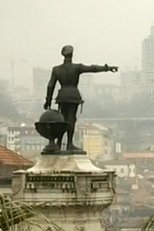
2006

Conversazione a Porto
0/0
A conversation between the filmmaker Manoel de Olivieira and the writer Agustina Bessa-Luís.
Watch Now
Conversazione a Porto

2011

Sem Cura - à saúde de Manoel de Oliveira
0/0
Watch Now
Sem Cura - à saúde de Manoel de Oliveira
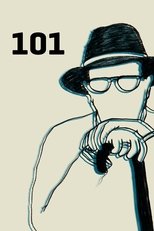
2012

101
9/2
An exploration of the movie "The strange case of Angelica" and an understanding Manoel de Oliveira's cinema.
Watch Now
101
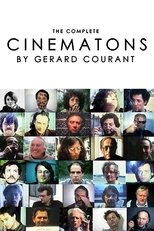
1978

Cinématon
4.3/6
Cinématon is a 156-hour long experimental film by French director Gérard Courant. It was the longest film ever released until 2011. Composed over 36 y...
Watch Now
Cinématon
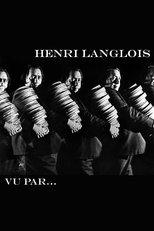
2014

Henri Langlois vu par...
0/0
Thirteen filmmakers talk about Henri Langlois and their relationship with him.
Watch Now
Henri Langlois vu par...

1981

Cinématon XI
0/0
Reel 11 of Gérard Courant's on-going Cinematon series.
Watch Now
Cinématon XI
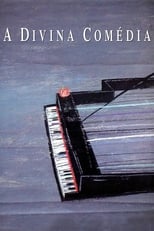
1991

The Divine Comedy
6.9/13
In a mental institution the patients see themselves as people like Jesus, Lázaro, Marta, Maria, Adão, Eve, Sonia, Raskolnikov, Aliosha e Ivan Karamaso...
Watch Now
The Divine Comedy
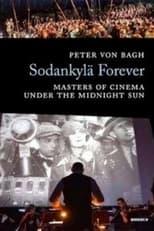
2010

Sodankylä Forever
0/0
The Midnight Sun Film Festival is held every June in the Finnish village of Sodankylä beyond the arctic circle — where the sun never sets. Founded by...
Watch Now
Sodankylä Forever
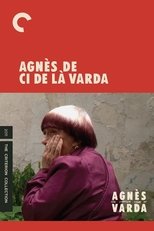
2011

Agnès Varda: From Here to There
8.2/3
Agnès Varda travels around the world to meet friends, artists and filmmakers for an expansive view of the global contemporary art scene.
Watch Now
Agnès Varda: From Here to There


Cinématon n°102 : Manoel de Oliveira
0/0
Watch Now
Cinématon n°102 : Manoel de Oliveira
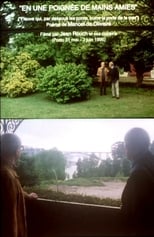
1997

A Friendly Handshake
0/0
From the bridges of Porto to its estuary, two men are paying tribute to the elegant Douro River. Through Luís de Camões and Prince Henry the Navigator...
Watch Now
A Friendly Handshake
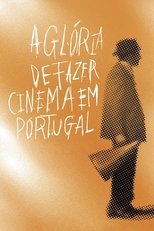
2015

The Glory of Filmmaking in Portugal
6.2/5
On 18 September 1929, José Régio sent a letter to Alberto Serpa expressing his desire to create a production company and start making films. For almos...
Watch Now
The Glory of Filmmaking in Portugal

2011

Guest
6/8
Filmmaker José Luis Guerin documents his experience during a year of traveling as a guest of film festivals to present his previous film. What emerges...
Watch Now